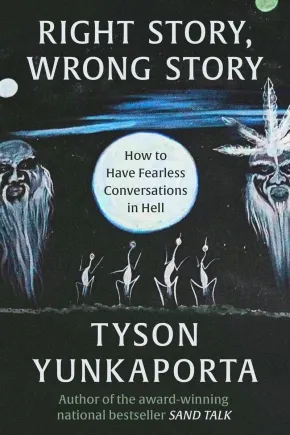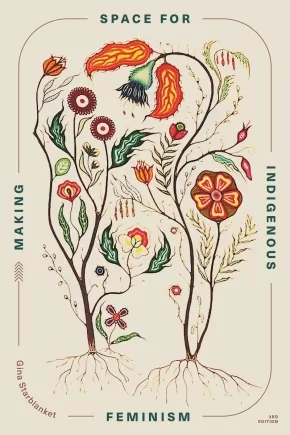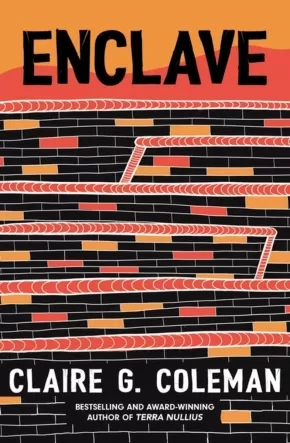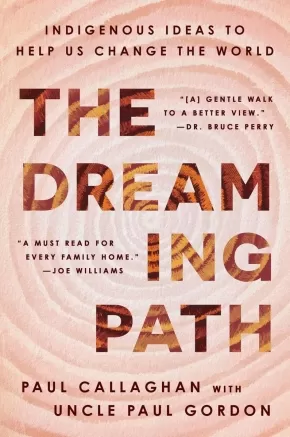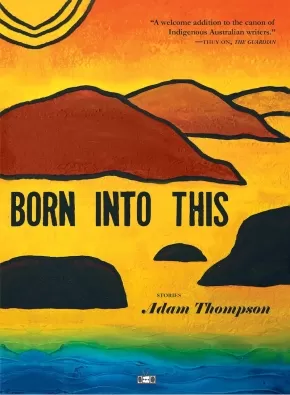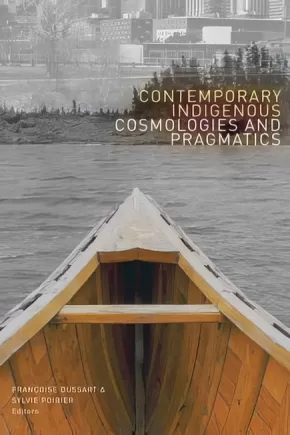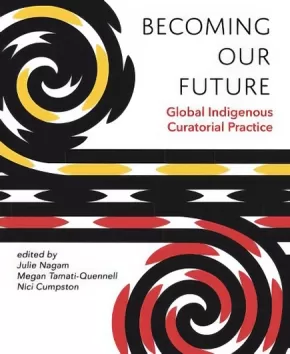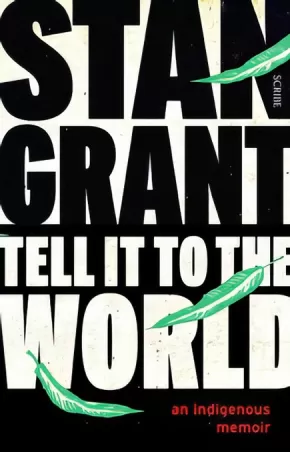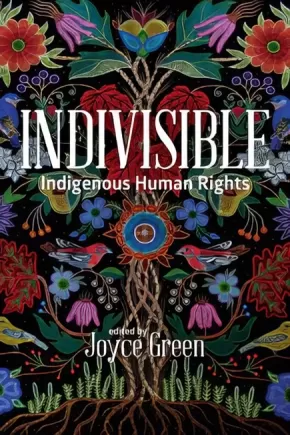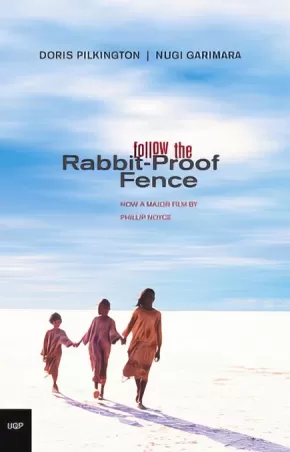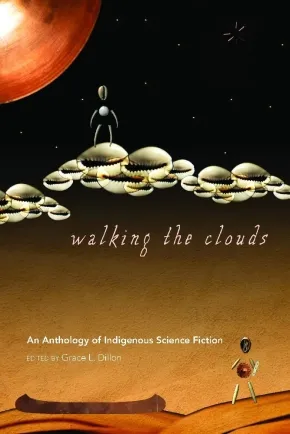Indigenous Peoples in Australia
Synopsis:
Continuing the work of the award-winning Sand Talk, Tyson Yunkaporta casts an Indigenous lens on contemporary society, challenging us to face conflict and embrace conversation to find our way onto the right track.
With Right Story, Wrong Story, Apalech Clan member Tyson Yunkaporta, from far north Queensland, tackles the divisions that prevent us from talking to one another. Yunkaporta invites us to confront life’s biggest questions and arms us with the tools we need to really listen, and to open our minds to change based upon our connections with others. He makes this point through discussions with a diverse range of people across social and political divides including:
- liberal economists
- memorization experts
- Frisian ecologists
- and Elders who are wood carvers, mathematicians, and storytellers.
Building upon the Indigenous tradition of “yarning” to weave our individual narratives into the great narrative that includes us all across any and all differences, Yunkaporta argues that story is at the heart of everything. But what is right or wrong story?
Synopsis:
The third edition of this iconic collection features Indigenous feminist voices from across generations and locations, including many exciting new contributors.
The third edition of the iconic collection Making Space for Indigenous Feminism features feminist, queer and two-spirit voices from across generations and locations.
Feminism has much to offer Indigenous women, and all Indigenous Peoples, in their struggles against oppression. Indigenous feminists in the first edition fought for feminism to be considered a valid and essential intellectual and activist position. The second edition animated Indigenous feminisms through real-world applications. This third edition, curated by award-wining scholar Gina Starblanket, reflects and celebrates Indigenous feminism’s intergenerational longevity through the changing landscape of anti-colonial struggle and theory. Diverse contributors examine Indigenous feminism’s ongoing relevance to contemporary contexts and debates, including queer and two-spirit approaches to decolonization, gendered and sexualized violence, storytelling and narrative, digital and land-based presence, Black and Indigenous relationalities and more. This book bridges generations of powerful Indigenous feminist thinking to demonstrate the movement’s cruciality for today.
Reviews
“This collection is all feast, no fluff. It covers foundational elements of Indigenous feminism with depth and breadth and engages issues of national and international importance with considerable insight. Due to its readability and smart use of theory, this book is eminently teachable. I haven't highlighted this much in a long time.”— Margaret Robinson, Canada Research Chair in Reconciliation, Gender, and Identity
“This volume offers a view of the development and expansion of Indigenous feminisms as theory and praxis, reaffirming the validity of our respective Indigenous epistemologies to guide us into the future.”— Jennifer Nez Denetdale (Diné), University of New Mexico
“Multiplying are the calls for transformative healing issued by Indigenous feminism which is, at its core, about Indigenous sovereignty, solidarity, and liberatory justice for all. The diverse and incisive essays in Making Space for Indigenous Feminism (3rd ed) expose ongoing cis-heteropatriarchal settler colonialism, anti-Indigenous racism, and the erasure of gender and sexual diversity (including by Indigenous people ourselves), and their impacts upon minds, bodies, lived experiences, and relationships. Resistance and hope abound in the re-centring of (queer) Indigenous feminist futurisms: world-building that honours the self-determination of Indigenous women, girls, Two-Spirit, and trans folks, and promotes wellbeing for all of Creation.”— Chantal Fiola, author and associate professor, University of Manitoba
“This third edition continues to fulfill the promise of the title to make space for feminist interventions in Canadian Indigenous studies. Each author is committed to relational ethics and transformative praxis in addressing the most pressing issues that create epistemic and material injustices. From the heart rendering an intimate state-of-the-field assessment from pillars in the field, the politics of gender, policy, and violence manifested in Canada currently, to its latter chapters that open up new spaces by continuing to press for just Indigenous futures, of which decentering binaries of gender and sexuality is necessary, we see the importance of Indigenous feminist theorizing and praxis. Confronting gendered violence, heterosexism, disciplinary regimes, and colonialism with honesty and truth telling, Making Space generously offers us new paths to materialize a decolonial world.”— Mishuana Goeman, author of Mark My Words and Settler Aesthetics: Visualizing the Spectacle of Originary Moments in The New World
“Making Space for Indigenous Feminism provides us with powerful voices emerging from and incorporating past, present, and future. Each chapter continues to make space for the power of Indigenous feminisms, as women, femme, Queer, LGBTQS+ and Mad think together in a powerful analysis of our now. This latest edition of a classic, newly edited by Gina Starblanket, includes Elders and youth and brings us back to why Indigenous feminisms are the embodied, lived and felt knowledges that will inform our struggles going forward.”— Dian Million, University of Washington, American IndianStudies
Educator Information
Table of Contents
Extending Our Accounts of Indigenous Feminism—Joyce Green and Gina Starblanket
Section I: Home | Identity | Legacies
- Always Coming Home: Indigenous Identity, Indigenous Feminism, Scholarship and Life—Joyce Green
- Why Am I a Feminist?—Emma LaRocque
- Settler Colonialism in Canada: Making “Indian” Women Disappear—Mary Eberts, Shelagh Day, Sharon McIvor
Section II: Institutions | Representation | Resistance
- Red Ticket Women: Revisiting the Political Contributions of the Indian Rights for Indian Women’s Movement—Gina Starblanket
- Perpetual State of Violence: An Indigenous Feminist Anti-Oppression Inquiry into Missing and Murdered Indigenous Women and Girls—Robyn Bourgeois
- Gender Reveals that Matter: Cis-Heteropatriarchy, Settler Colonialism, and Child Welfare—Megan Scribe
Section III: Land | Relationality | Love
- Towards an Anti-Colonial Feminist Care Ethic—Eva Jewell
- Our Movements Need some Love as Well: Indigenous Land Defense and Relationality—Isabel Altamirano-Jimenez
- Mana Wahine and Mothering at the Loʻi: A Two-Spirit/Queer Analysis—Hōkūlani K. Aikau
Section IV: Decoloniality | Movement | Futurities
- Decolonization is a Queer Desire: Poetics, Politics, Negativity—Billy-Ray Belcourt
- Mad Indigenous Womanhood and the Psycho-Politics of Settler Colonialism—Cara Peacock
- On Black and Indigenous Relationality: A Conversation—Gina Starblanket, Robyn Maynard, Leanne Betasamosake Simpson
- Decolonization is Also Metaphorical: Indigenous Feminist and Queer-Two-Spirit Storywork Matters—Kelly Aguirre
Additional Information
320 pages | 6.00" x 9.00" | Paperback
Synopsis:
'These are troubling times. The world is a dangerous place,' the voice of the Chairman said. 'I can continue to assure you of this: within the Wall you are perfectly safe.'
Christine could not sleep, she could not wake, she could not think. She stared, half-blind, at the cold screen of her smartphone. She was told the Agency was keeping them safe from the dangers outside, an outside world she would never see.
She never imagined questioning what she was told, what she was allowed to know, what she was permitted to think. She never even thought there were questions to ask.
The enclave was the only world she knew, the world outside was not safe. Staying or leaving was not a choice she had the power to make. But then Christine dared start thinking . . . and from that moment, danger was everywhere.
In our turbulent times, Claire G. Coleman's Enclave is a powerful dystopian allegory that confronts the ugly realities of racism, homophobia, surveillance, greed and privilege and the self-destructive distortions that occur when we ignore our shared humanity.
Reviews
'A brilliant, engrossing, necessary read' - Courier Mail
'If you liked Margaret Atwood's The Handmaid's Tale or Charlotte Woods' The Natural Way of Things, this one is clearly for you' - Sydney Morning Herald
'Coleman offers an urgent critique of bigotry and, implicitly, of colonialism, writing with conviction about the ways technology can be misused by those in power, but also how it might be deployed for good. Indeed, despite its dystopian tenor, Enclave is ultimately a hopeful novel, and one which suggests it is far from futile to aspire to a better future' -Manjimup-Bridgetown Times
Additional Information
320 pages | 6.00" x 9.25"
Synopsis:
Drawing on ancient Aboriginal wisdom, a leading Indigenous Australian healer and an Elder show you how to find contentment, purpose, and healing by learning to reconnect with your story—and ultimately the universe.
Dr. Paul Callaghan belongs to the land of the Worimi people who live north of Sydney along the east coast of Australia. Raised to live the western way, Paul found himself mired in deep depression—struggling to find meaning while raising a family and working as a senior education executive. Desperate to break free of his restlessness, he made a drastic change: He “went bush” and connected with his elders to “walk Country” and learn Aboriginal traditions. Twenty years later, Paul is an expert healer and spiritual guide eager to share the wisdom of his ancestors and the insights he discovered on his life journey.
In this affirming, empowering, and transformative book, he teaches you about the Dreaming Path—a connection to the earth and the universe, past, present, and future that has always been there, but can be difficult to find amid the chaos of the modern world.
The Dreaming Path offers tips, practices, inspiration, and motivation that can enable you to achieve a profound state of mind, body, and spirit wellness, while encouraging you to think deeply about essential life topics, including:
- Caring for our place and the importance of story
- Relationships, sharing, and unity
- Love, gratitude, and humility
- Learning and living your truth
- Inspiration and resilience
- Being present and healing from the past
- Contentment
- Leading
The Dreaming Path reminds us that we are our stories; by learning to recognize that we are all an indelible part of something much larger, we can begin to heal ourselves and our communities.
Additional Information
320 pages | 6.00" x 9.00" | Hardcover
Synopsis:
"With its wit, intelligence and restless exploration of the parameters of race and place, Thompson’s debut collection is a welcome addition to the canon of Indigenous Australian writers." —Thuy On, The Guardian
The remarkable stories in Born Into This are eye-opening, razor-sharp, and entertaining, often all at once.
From an Aboriginal ranger trying to instill some pride in wayward urban teens on the harsh islands off the coast of Tasmania, to those scraping by on the margins of white society railroaded into complex and compromised decisions, Adam Thompson presents a powerful indictment of colonialism and racism.
With humor, pathos, and the occasional sly twist, Thompson’s characters confront discrimination, untimely funerals, classroom politics, the ongoing legacy of cultural destruction, and — overhanging all like a discomforting, burgeoning awareness for both black and white Australia — the inexorable disappearance of the remnant natural world.
Reviews
"Thompson portrays a group of Aboriginal communities in Tasmania in his riveting debut collection... The author movingly describes their resilience, whether facing aggressive storms or the terror of colonization."—Publishers Weekly
"Some stories are morbidly comic while others cut deep, conveying the absurdity and despair of Indigenous experiences of settler-colonialism across Tasmania."—Tristen Harwood, The Saturday Paper
"Born Into This represents the emergence of a fresh and vital voice on the Australian literary scene. Indigenous writer Adam Thompson expertly combines wit and pathos in his debut short story collection. With stories from a diversity of perspectives, but bound by its Tasmanian setting, Thompson’s mastery over his characters and sensibility for contemporary issues makes this a special collection."—Happy Mag, Best New Books of 2021
Additional Information
142 pages | 5.50" x 7.50" | Paperback
Synopsis:
In this timely collection, the authors examine Indigenous peoples’ negotiations with different cosmologies in a globalized world. Dussart and Poirier outline a sophisticated theory of change that accounts for the complexity of Indigenous peoples’ engagement with Christianity and other cosmologies, their own colonial experiences, as well as their ongoing relationships to place and kin. The contributors offer fine-grained ethnographic studies that highlight the complex and pragmatic ways in which Indigenous peoples enact their cosmologies and articulate their identity as forms of affirmation. This collection is a major contribution to the anthropology of religion, religious studies, and Indigenous studies worldwide.
Contributors: Anne-Marie Colpron, Robert R. Crépeau, Françoise Dussart, Ingrid Hall, Laurent Jérôme, Frédéric Laugrand, C. James MacKenzie, Caroline Nepton Hotte, Ksenia Pimenova, Sylvie Poirier, Kathryn Rountree, Antonella Tassinari, Petronella Vaarzon-Morel
Reviews
“Contemporary Indigenous Cosmologies and Pragmatics advances debates about how Indigenous cosmologies are received, understood, and valued. The contributors consider the complex connections that emerge between religiosity, politics, activism, and the ways in which globalization continues to shape these processes as Indigenous cultures relate with different elements of traditionally European religions.” - Amy Whitehead, Senior Lecturer in Social Anthropology, Massey University
Educator Information
Keywords / Subjects: Cosmology; religion; ritual; Indigenous; settler-Indigenous; spiritual; ethnography; Americas; Australia; Malta; Russia; secular; globalization; entanglement; identity politics; Social Science; Comparative Religion, Anthropology; Beliefs
Table of Contents
1 Indigenous Cosmologies, Entangled Religiosities, and Global Connections 1
A Theoretical Overview
FRANÇOISE DUSSART & SYLVIE POIRIER
2 Embracing Christianity, Rejecting Western Individualism? 33
Inuit Leaders and the Limits of Indigenization
FRÉDÉRIC LAUGRAND
3 Engaging Religiosities 59
Relationality, Co-existence, and Belonging among Lander Warlpiri, Central Australia
PETRONELLA VAARZON-MOREL
4 Making People 87
Manipulating Alterity in the Production of the Person among the Karipuna People of Northern Brazil
ANTONELLA TASSINARI
5 Discourses on the Advent of New Times among the Kaingang People of Southern Brazil 111
ROBERT R. CRÉPEAU
6 From Unknown to Hypermediatized 133
Shipibo-Konibo Female Shamans in Western Amazonia
ANNE-MARIE COLPRON
7 Tying Down the Soul of a Potato in the Southern Peruvian Andes 157
Performance and Frictions
INGRID HALL
8 Negotiating Indigenous-Global Relationships in Contemporary Shamanism 187
The Case of Malta
KATHRYN ROUNTREE
9 Indigenous Cosmologies and Social Media 219
Creativity, Self-Representation, and Power of the Image for First Nations Women Artists
CAROLINE NEPTON HOTTE & LAURENT JÉRÔME
10 Human Remains and Indigenous Religiosity in the Museum Space 253
Ritual Relations to the Altaian Mummy in the Anokhin National Museum of the Altai Republic, Russia
KSENIA PIMENOVA
11 Shaman, Christian, Bureaucrat, Cop 285
Maya Responses to Modern Entanglements
C. JAMES MACKENZIE
Contributors 311
Index 317
Additional Information
344 pages | 6.00" x 9.00" | Paperback
Synopsis:
This book investigates international Indigenous methodologies in curatorial practice from the geographic spaces of Canada, Aotearoa (New Zealand) and Australia. From a perspective of Indigenous peoples important place within society, this collection explores how Indigenous art and culture operate within and from a structural framework that is unique and is positioned outside of the non-Indigenous cultural milieu.
Through a selection of contributions, Becoming Our Future articulates this perspective, defines Indigenous curatorial practice and celebrates Indigenous sovereignty within the three countries. It begins to explore the connections and historical moments that draw Indigenous curatorial practices together and the differences that set them apart. This knowledge is grounded in continuous international exchanges and draws on the breadth of work within the field. Contributors include Nigel Borell, Nici Cumpston, Freya Carmicheal, Karl Chitham, Franchesca Cubillo, Léuli Eshraghi, Reuben Friend, Heather Igloliorte, Jaimie Isaac, Carly Lane, Michelle LaVallee, Cathy Mattes, Bruce McLean, Lisa Myers, Julie Nagam, Jolene Rickard, Megan Tamati-Quennell, and Daina Warren.
Educator Information
Becoming our Future: Global Indigenous Curatorial Practice is a co-publication based on the three-year Tri-Nations International Indigenous Curators' Exchange, and was a joint initiative between the Australia Council for the Arts, Canada Council for the Arts and Creative New Zealand. It features artists and the curatorial perspectives of Indigenous curators from Canada, Australia and New Zealand.
Additional Information
228 pages | 6.25" x 9.25"
Synopsis:
As an Aboriginal Australian, Stan Grant has had to contend with his country’s racist legacy all his life. Born into adversity, he found an escape route through education and the writing of James Baldwin, going on to become one of Australia’s leading journalists.
As a correspondent for CNN, he travelled the world, covering conflicts everywhere, from Baghdad to North Korea. Struck by how the human spirit can endure in the face of repression, he found the experiences of individuals he met spoke to him of the undying call of family and homeland. In the stories of other dispossessed peoples, he saw that of his own.
In Tell It to the World, Grant responds to the ongoing racism that he sees around him. He writes with passion and striking candor of the anger, shame, and hardship of being an indigenous man. In frank, mesmerizing prose, Grant argues that the effects of colonialism and oppression are everyday realities that still shape our world.
Additional Information
256 pages | 5.30" x 8.30"
Synopsis:
The first edition of Making Space for Indigenous Feminism proposed that Indigenous feminism was a valid and indeed essential theoretical and activist position, and introduced a roster of important Indigenous feminist contributors. This new edition builds on the success and research of the first and provides updated and new chapters that cover a wide range of some of the most important issues facing Indigenous peoples today: violence against women, recovery of Indigenous self-determination, racism, misogyny and decolonization. Specifically, new chapters deal with Indigenous resurgence, feminism amongst the Sami and in Aboriginal Australia, neoliberal restructuring in Oaxaca, Canada’s settler racism and sexism, and missing and murdered Indigenous women and girls in Canada.
Written by Indigenous feminists and allies, this book provides a powerful and original intellectual and political contribution demonstrating that feminism has much to offer Indigenous women, and all Indigenous peoples, in their struggles against oppression.
Reviews
“Making Space for Indigenous Feminism is an essential resource that places gender justice at the core of our analyses of colonization and decolonization. What we learn is urgent: without addressing the systemic and symbolic character of the gendered violence that Indigenous women, girls, two-spirit, trans, and queer folks disproportionately face, decolonization will remain a man-made, colonial sham.” — Glen Coulthard, First Nations and Indigenous Studies, UBC
“This path-breaking collection brings together leading and emerging voices in the field, presenting critical innovative research that reminds us of the need for a consistent application of feminist analytic tools to understand colonialism and patriarchy as mutually constitutive and reinforcing forces. This collection is essential as an emancipatory tool for decolonization and Indigenous resurgence.” — Heidi Kiiwetinepinesiik Stark, University of Victoria
Additional Information
256 pages | 6.00" x 9.00"
Synopsis:
Indigenous rights are generally conceptualized and advocated separately from the human rights framework. The contributors to Indivisible: Indigenous Human Rights, however, deftly and powerfully argue that Indigenous rights are in fact human rights and that the fundamental human rights of Indigenous people cannot be protected without the inclusion of their Indigenous rights, which are suppressed and oppressed by the forces of racism and colonialism. Drawing on a wealth of experience and blending critical theoretical frameworks and a close knowledge of domestic and international law on human rights, the authors in this collection show that settler states such as Canada persist in violating and failing to acknowledge Indigenous human rights. Furthermore, settler states are obligated to respect and animate these rights, despite the evident tensions in political and economic interests between elite capitalists, settler citizens and Indigenous peoples.
Reviews
“The historic and contemporary challenges faced by Indigenous peoples, be it the tragedy of residential schools, high levels of violence against women, abusive policing, struggles around land and resources, or entrenched poverty are reflective of the disgraceful failure of Canada and other states to uphold human rights. Indivisible is a critical call to governments and Indigenous peoples to take up the indivisible framework of rights protection enshrined in the UN Declaration of the Rights of Indigenous Peoples.” — Alex Neve, Amnesty International
“Well written, fast moving, and well researched, this is book is a rich, smart resource for anyone wanting to break down and understand the human rights versus indigenous rights debate, and to move on to more productive conversations about real political and legal change for indigenous peoples.” — Val Napoleon, University of Victoria
“Have you ever looked back at a point in your life when, had good advice been taken, it would have meant a much better future? This book offers that advice, now. Canadians who want to live well because Indigenous peoples prosper need to read Indivisible.” — Robert Lovelace, Retired Chief of Ardoch Algonquin First Nation, professor of global studies, Queen’s University
Educator Information
Table of Contents
Indigenous Human Rights are Indivisible (Joyce Green)
THEORETICAL AND POLITICAL CONTEXT FOR INDIGENOUS HUMAN RIGHTS
Denying Indigenous Human Rights: Colonialism and Rights Discourse in Canada (Joyce Green)
Two The Race Bind: Denying Aboriginal Rights in Australia (Maggie Walter)
Colonialism Past and Present: Indigenous Human Rights and Canadian Policing (Elizabeth Comack)
Indigenous Human Rights and Decolonization (Andrea Smith)
ABORIGINAL HUMAN RIGHTS — SPECIFIC THEMES
McIvor v. Canada: Legislated Patriarchy Meets Aboriginal Women’s Equality Rights (Gwen Brodsky)
Confronting Violence: Indigenous Women. Self-Determination and International Human Rights (Rauna Kuokkanen)
Victoria’s Secret: How to Make a Population of Prey (Mary Eberts)
INTERNATIONAL AND DOMESTIC CONSTITUTIONAL LAW and INDIGENOUS HUMAN RIGHTS
Free, Prior and Informed Consent: Defending Indigenous Rights in the Global Rush for Resources (Craig Benjamin)
The Presumption of Conformity: International Indigenous Human Rights and the Canadian Constitution (Brenda Gunn)
Undermining Indigenous Peoples’ Security and Human Rights (Paul Joffe)
Additional Information
240 pages | 6.00" x 9.00"
Synopsis:
This extraordinary story of courage and faith is based on the actual experiences of three girls who fled from the repressive life of Moore River Native Settlement, following along the rabbit-proof fence back to their homelands. Assimilationist policy dictated that these girls be taken from their kin and their homes in order to be made white. Settlement life was unbearable with its chains and padlocks, barred windows, hard cold beds, and horrible food. Solitary confinement was doled out as regular punishment. The girls were not even allowed to speak their language. Of all the journeys made since white people set foot on Australian soil, the journey made by these girls born of Aboriginal mothers and white fathers speaks something to everyone.
Educator Information
Grades 11-12 English First Peoples Resource.
Additional Information
160 pages | 5.00" x 7.75"
Synopsis:
In this first-ever anthology of Indigenous science fiction, Grace Dillon collects some of the finest examples of the craft with contributions by Native American, Canadian First Nations, Aboriginal Australian, and New Zealand Maori authors. The collection includes seminal authors such as Gerald Vizenor and Eden Robinson, historically important contributions often categorized as “magical realism” by authors like Leslie Marmon Silko and Sherman Alexie, and authors more recognizable to science fiction fans like William Sanders and Stephen Graham Jones. Dillon’s engaging introduction situates the pieces in the larger context of science fiction and its conventions.
Additional Information
272 pages | 6.00" x 9.00"

